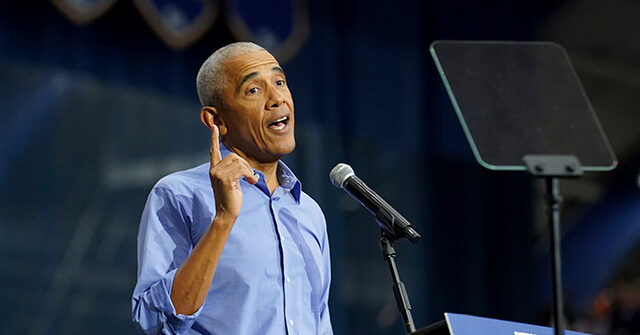Former President Barack Obama recently addressed the important issue of support among Black men for Vice President Kamala Harris during his campaign tour. This discussion came off the back of Pew Research findings that indicate Harris is experiencing a drop in support among Black voters compared to President Joe Biden’s performance in 2020. Notably, polls have shown that while 80 percent of Black men support Harris, a significant portion, particularly younger voters under 50, have shown a willingness to back former President Donald Trump. Obama’s comments sought to challenge this trend, suggesting that some of this political alignment may be influenced by underlying sexism.
During an event in Pennsylvania, Obama urged Black men to reflect upon their support for a political landscape that includes women leaders. He insinuated that the hesitance to fully embrace a woman in the presidential role could be the driving factor behind the inclination to consider alternative candidates like Trump. With a focus on garnering enthusiasm and voter turnout, Obama emphasized the need for unity and support within the Black community, particularly reminding his audience of the historical context of their struggles and efforts to achieve leadership positions.
Obama further emphasized the importance of recognizing Harris’s unique background and achievements—stating her close ties with the Black community and her journey in overcoming adversity to achieve the second-highest office in the nation. By framing Harris as someone who shares similar experiences with Black men, Obama aimed to bolster her appeal and encourage a sense of collective identity and responsibility among voters. His remarks touched on a broader theme of the historical challenges faced by Black politicians and the importance of solidarity in advancing their representation.
In recent elections, there has been a noticeable shift in Black voter preferences, with the Republican share of the Black vote increasing from 9 percent in 2018 to 13 percent in 2022. This change raises critical questions about the motivations and dynamics at play within the Black voting bloc, particularly in light of the seemingly lukewarm support for Harris. Obama’s call to Black men reflects an awareness of this trend and the need to address it directly, advocating for a reevaluation of their political choices.
Immediately stemming from these observations is the idea that the Democrats must actively engage and address the concerns of Black voters. The decline in support for Harris can be perceived as a wake-up call for the Democratic Party to reevaluate strategies and messaging that resonate with this crucial segment of the electorate. Obama’s direct approach could be seen as an attempt to galvanize support and address the barriers that may prevent a stronger coalition from forming around female leadership.
As Obama continues to campaign for Harris, it seems clear that he is not only highlighting the unique challenges faced by women in politics but is also seeking to reaffirm the power of shared identity and historical experience in encouraging political participation. The path forward for Democrats, especially in the context of support from Black men, will depend on effectively communicating the value and importance of representation, as well as fostering an environment that uplifts all voices within the community. The implications of this dialogue extend beyond individual elections; it speaks to the ongoing struggle for equity and recognition in American politics.

